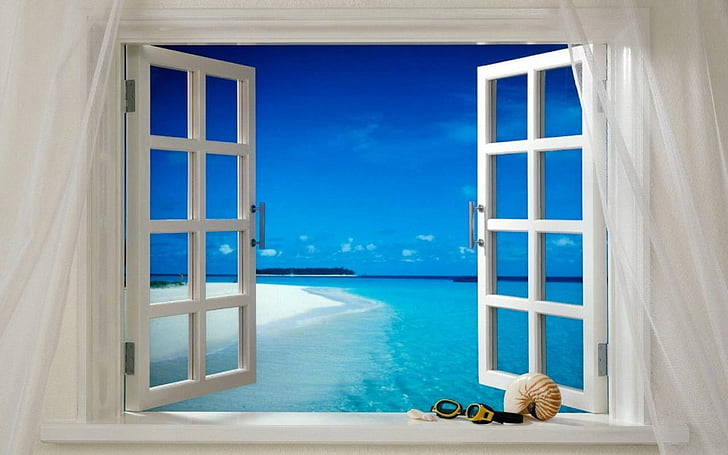The Benefits of Installing Smart Glass for Home Environments
Category :

Smart glass technology is revolutionizing home environments, offering not just enhanced privacy and security but also energy efficiency and aesthetic sophistication. As homeowners increasingly seek smarter, more sustainable living solutions, smart glass for home emerges as a top choice. This blog explores the manifold benefits of integrating smart glass into your home, backed by recent technological advances and consumer testimonials.
What
Is Smart Glass?
Smart glass represents a significant leap in home technology, offering a fusion of functionality and design that enhances modern living spaces. Essentially, smart glass is an advanced material that can alter its properties, specifically its transparency, in response to external stimuli. This innovative glass can switch from being completely transparent to fully opaque with the simple press of a button, a change in light conditions, or even alterations in temperature.
Unpacking the Technology
Behind Smart Glass
The technology behind smart glass is rooted in the ability to
control the passage of light and, therefore, visibility and temperature. This
dynamic characteristic is achieved through various types of smart glass
technologies, each responding differently depending on the environmental inputs
or user preferences.
Here are the primary types of smart glass used in residential and commercial settings, each with unique characteristics and applications:
Electrochromic Smart Glass:
This type is perhaps the most well-known form of smart glass. Electrochromic glass changes color when a small electric voltage is applied. Typically, it transitions from clear to a blue or gray tint. This change helps control the light and heat entering through the glass. The process is smooth and can be adjusted to various levels of opacity, making it ideal for applications where variable light control is necessary.
Thermochromic Smart Glass:
As the name suggests, thermochromic glass responds to changes in temperature. It automatically adjusts its opacity as the external temperature changes, making it an excellent choice for improving energy efficiency without manual intervention. For example, on a hot day, the glass will automatically become tinted to reduce the heat load inside the home, thereby saving on air conditioning costs.
Photochromic Smart Glass:
Similar to thermochromic glass but triggered by light instead of heat, photochromic glass changes transparency depending on the intensity of sunlight it is exposed to. This type is commonly used in skylights or sunrooms where direct sunlight can be intense and varying throughout the day.
Liquid Crystal Smart Glass:
When no voltage is applied, the liquid crystals in this type of smart glass randomly orient themselves, causing the glass to appear opaque. When voltage is applied, the crystals align, and the glass becomes clear. This type offers instant privacy and is ideal for use in interior partitions or any area where privacy can be required intermittently.
Suspended Particle Devices
(SPD):
This technology uses a film sandwiched between layers of glass
that contains particles which can be aligned with an electric current. When
'off', the particles scatter light, making the glass opaque. When 'on', the
particles align and the glass becomes clear. This type provides rapid and
adjustable control over the glass’s opacity.
Enhancing
Privacy Without Sacrificing Light:
One of the most compelling benefits of smart glass for home is its ability to provide instant privacy at the flick of a switch while maintaining natural light. Say goodbye to cumbersome curtains or blinds; with smart glass, your windows can turn opaque to shield you from external views or clear to enjoy the scenery.
Key
Points:
Instant Privacy: Switch from
transparent to opaque on demand.
Natural Light: Enjoy ample sunlight without compromising on privacy.
Energy
Efficiency:
A Smart Choice for Eco-friendly Homes Smart glass significantly reduces energy consumption by controlling the amount of heat and light entering the home. During summer, it can block excessive heat from sunlight, reducing air conditioning costs. In winter, it helps retain heat inside, lowering heating expenses.
Environmental
Impact:
Reduced Carbon Footprint: Less reliance on heating and cooling systems. Sustainability: Supports green living initiatives.
Aesthetic
and Design Flexibility
Smart glass offers a sleek, modern look for homes,
enhancing both interior and exterior aesthetics. It can be used in various
applications, from windows and skylights to interior partitions.
Design
Applications:
Windows and Skylights: Seamless integration into any architectural style.
Room Dividers: Create dynamic spaces that can be opened or closed off without physical barriers.
Increased
Home Value
Investing in smart glass can boost your home’s market
value. Its modern appeal and functional benefits make it an attractive feature
for potential buyers who value privacy, energy efficiency, and innovative
design.
Market Appeal:
High ROI: Attracts buyers interested in cutting-edge home technology.
Desirable Features: Combines style, privacy, and efficiency.
Health Benefits:
Better Light, Better Life Exposure to natural light is known to have significant health benefits, including improved mood, enhanced sleep quality, and increased vitamin D absorption. Smart glass allows optimal light control, which can contribute to healthier indoor environments.
Health
Advantages:
Mood Enhancement: Natural light can improve overall mood and energy. Sleep Quality: Proper light exposure helps regulate sleep patterns.
User-Friendly
Control Systems
Modern smart glass comes equipped with intuitive control
systems that can be integrated with home automation systems. This allows for
easy management of glass settings through smartphones or voice commands.
Technology
Integration:
Smart Home Compatibility: Integrates
with existing home automation.
Ease of Use: Control
settings with mobile apps or voice commands.
Conclusion
The adoption of smart glass in residential settings is more than just a trend; it's a forward-thinking decision that offers long-term benefits. From enhancing privacy and energy efficiency to boosting home value and promoting health, smart glass for home is an investment in future-proof living.
